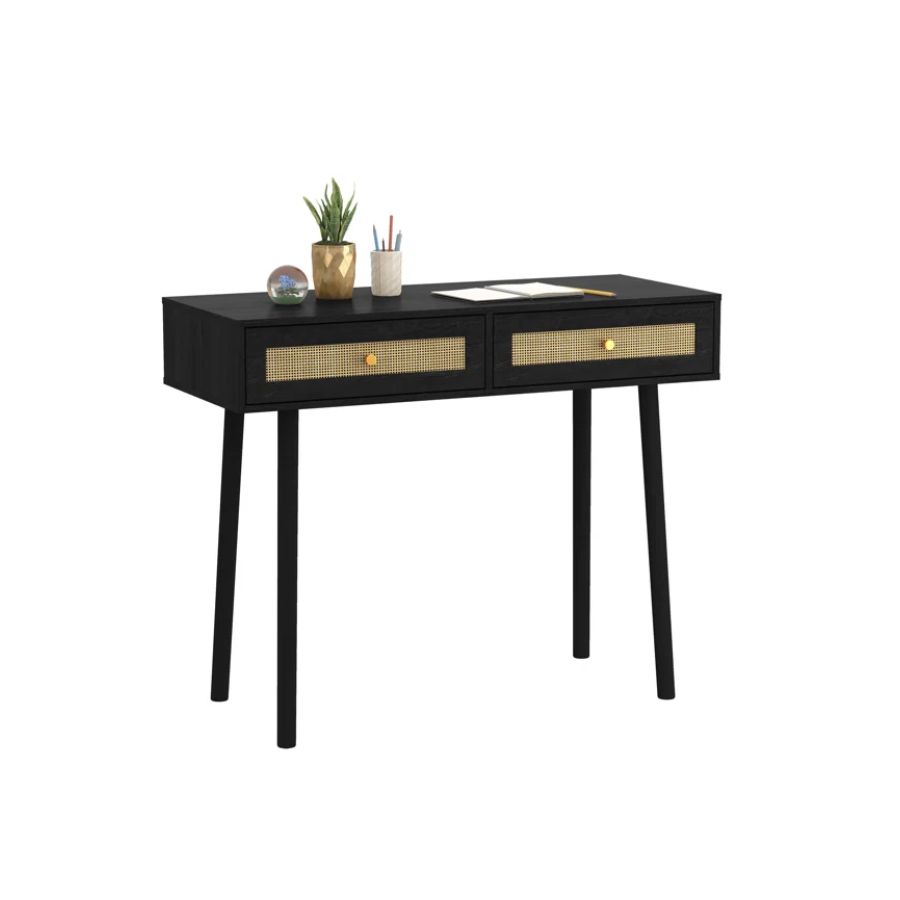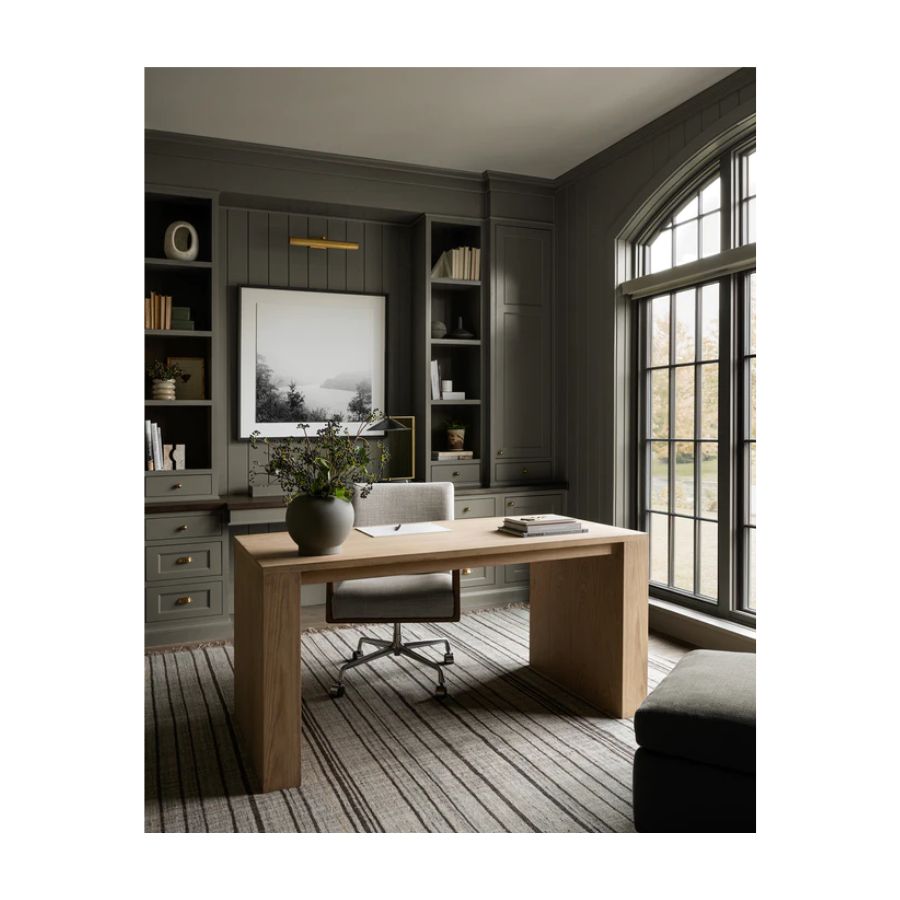Should your desk face the window? Designers know the best place for a productive state of mind
The correct desk position in your home office can enhance creative thinking and help you feel more relaxed while working. Here are some options to try out
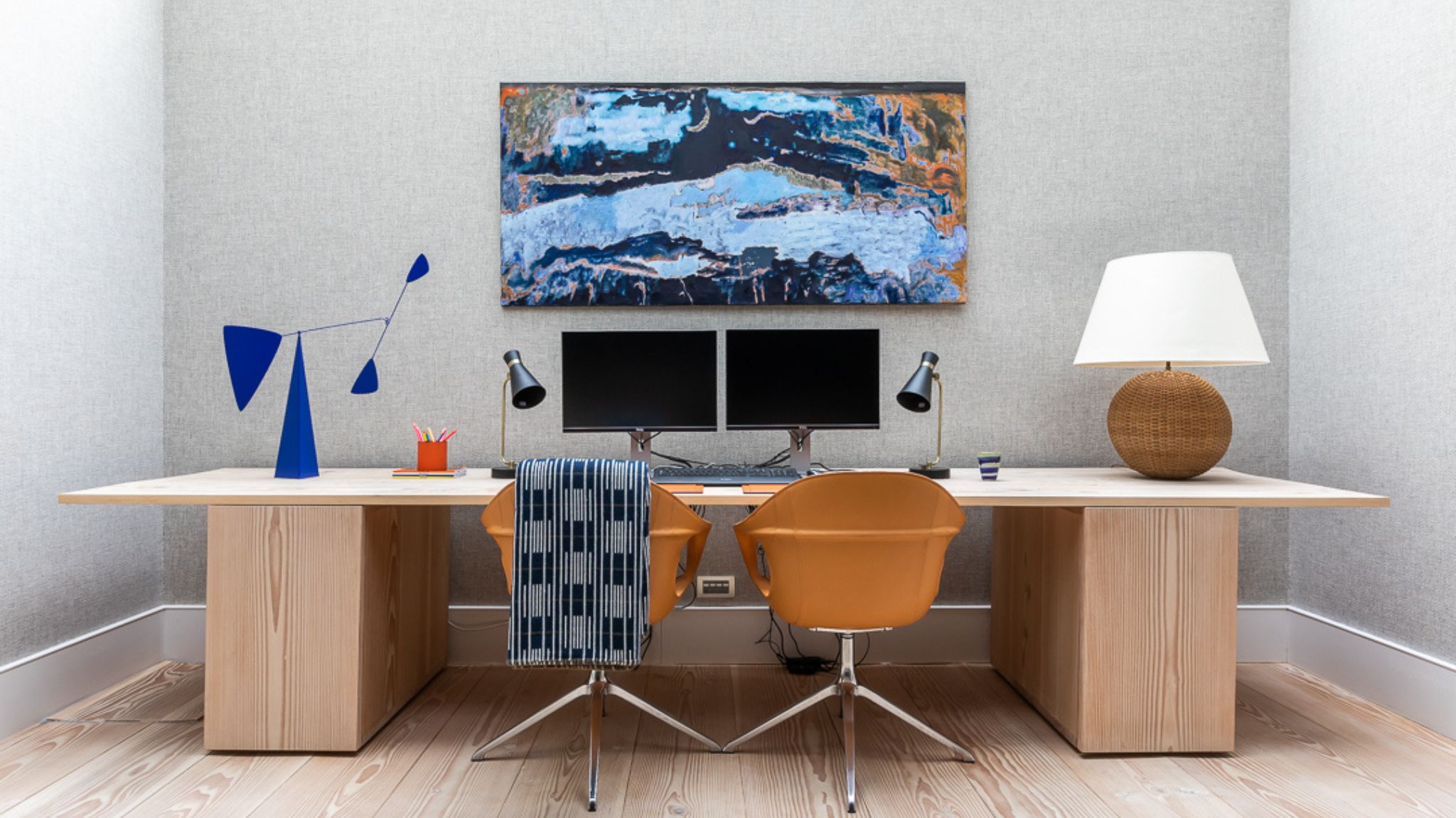
If you, like a lot of us these days, spend a lot of time working from home, you have probably carved out a space for your desk. A home office even, if you had the extra room to dedicate to it. The evergreen question in my mind when it comes to working from home has always been about the location of my desk, and I always found this to be a tricky decision to make. Technically, I love the idea of having my desk face a window, but it can be distracting looking out, and I don’t like having my back to the door. Facing the door, with the back to the window doesn’t work very well either for me because of the sunlight disrupting the view on my laptop screen.
For those of us relating to these issues and feeling the frustration, I spoke with one interior designer Alice Leigh about the possible layouts, and the advantages and disadvantages of each, to help decide at last how I should position my desk to create a pleasant and productive home office environment. Here’s what she said.
Should your desk face the window in your home office?
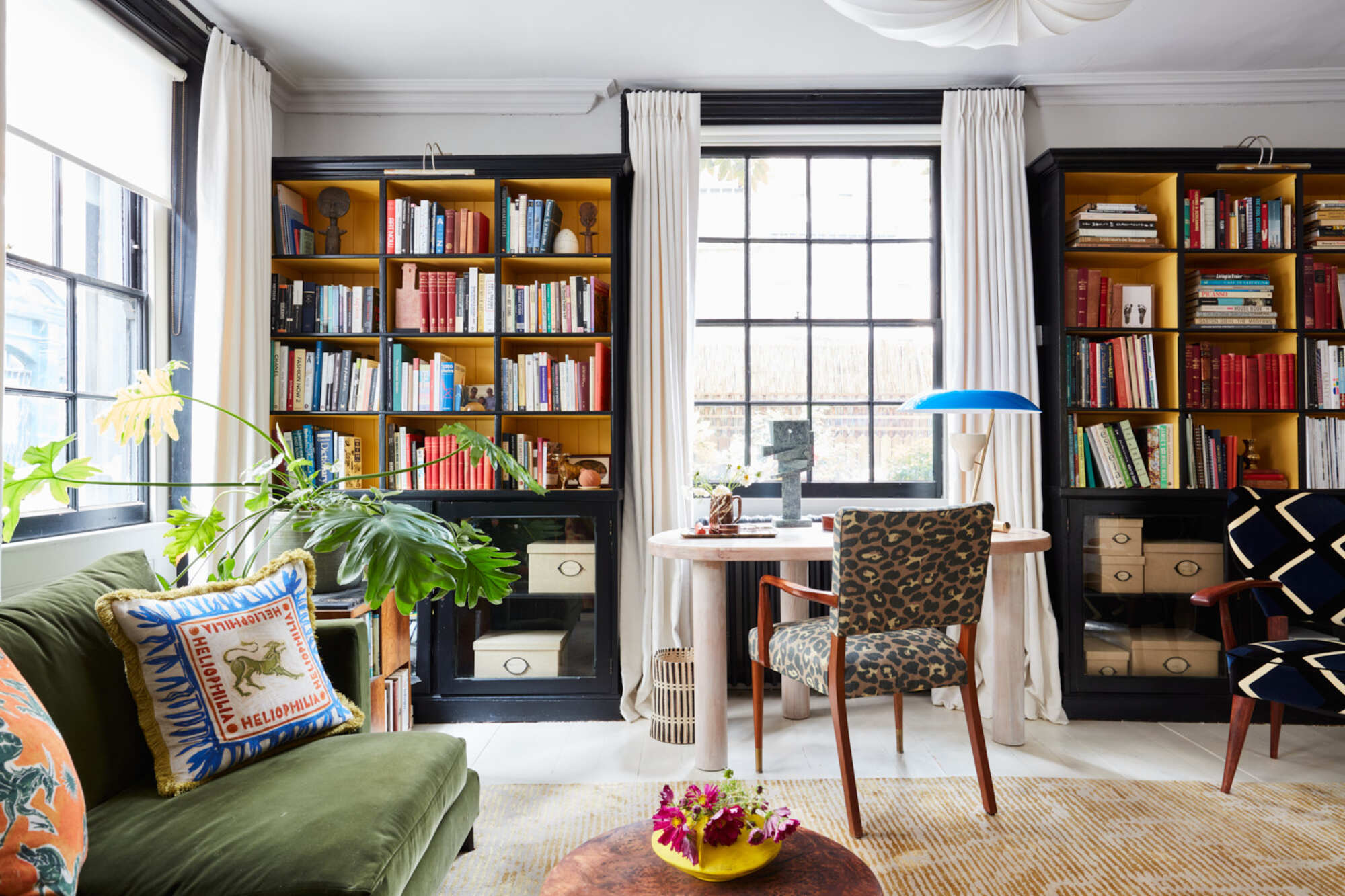
While there are different personal views on desk ideas and positions, having a desk facing the window is one of the most popular preferences out there, and it’s easy to understand why. ‘Some people, including myself, prefer to look out to a view, something inspiring,’ says interior designer Alice Leigh. There are extra benefits to this layout, the designer goes on to tell me. ‘Views of restorative nature can enhance creative thinking and relaxed feelings whilst working. Facing a window or garden allows people to embrace nature, particularly if living in a city or urban area.’
In terms of well-being, a desk overlooking the outdoors is one of the best options, however, if this means that you have your back to the door, there might be an issue. Leigh has designed many work-from-home spaces for her clients and she shares that especially in a busy environment not being able to see who is walking in is not ideal. If you find yourself in this situation, think about where you’re happy to compromise.
The priority is choosing the position that would put you in the best, focused state of mind to carry out your work without being distracted: that can be having the option to gaze out the window every now and then while thinking, or being able to have sight of your door so you’re not taken by surprise or interrupted by anyone popping in.
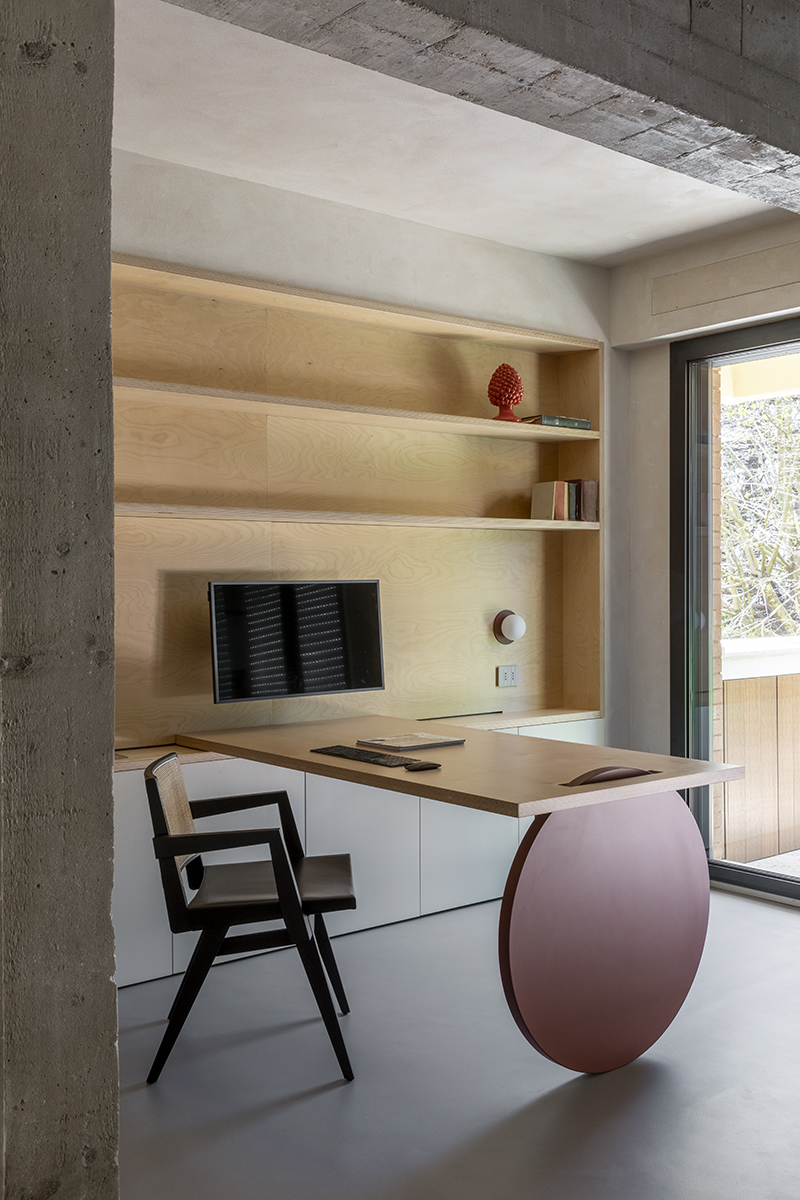
STUDIOTAMAT, an architecture and design practice charged with creating a flexible working space for their clients’ apartment, came up with a very ingenious solution that offers the best of both worlds. The desk moves in the space thanks to a wooden wheel that runs on a track hidden inside a bespoke built-in bookcase.
‘We thought of the table that slides in different positions through a rail on the bookcase; you can get closer to the outside, and by keeping the windows open you may feel like you're in the middle of the terrace greenery,’ says Tommaso Amato, co-founder of STUDIOTAMAT, who sees the benefits of having the outdoors in sight while working, but also offering the option of sliding (literally) away from it and be closer to the door.
Other desk positions that help create a productive home office environment

Another good option, shares Leigh, is to have the desk placed against a wall, as this allows for fewer distractions which in turn enables quick and effective thinking. ‘This is particularly relevant if you require built-in joinery and storage as it is easier to create this along a wall,’ she explains. In STUDIOTAMAT’s project, the team has planned the moving desk as part of the bookcase from the start, and it’s an integral piece of the design.
Having your desk to the side of the window is another alternative that still allows access to the view (albeit more limited), and facing a wall which helps to avoid distractions. ‘There is also a school of thought of having your desk facing into the room and being able to see people coming in, the flow of traffic, and creating a social feel. I like this layout if the desk is situated in a living room. If you position it behind a sofa it doubles up as a console table, the perfect spot for lamps and books,’ she says.
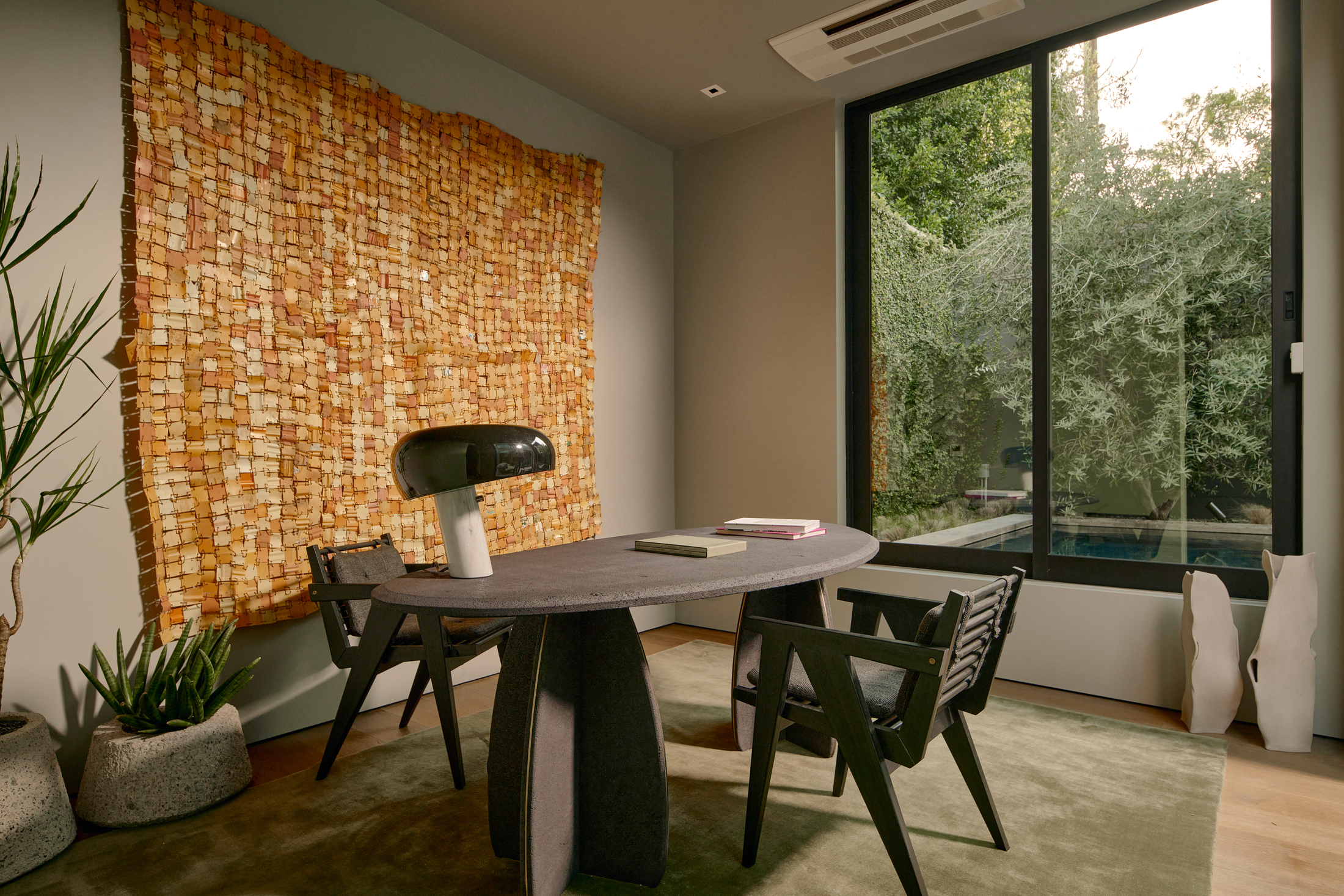
Ultimately, whichever way you choose to place your desk, you need to feel comfortable and avoid distractions, and, as we learn from Leigh, this can be different for each individual. Bespoke solutions considered with the room design from the start that allow flexibility and change of position are ideal. If that’s not an option, the best way is to take time and experiment with various desk positions and assess how you feel and what is ultimately the best choice for your personal needs.
Create a home office you love with one of these chic desks
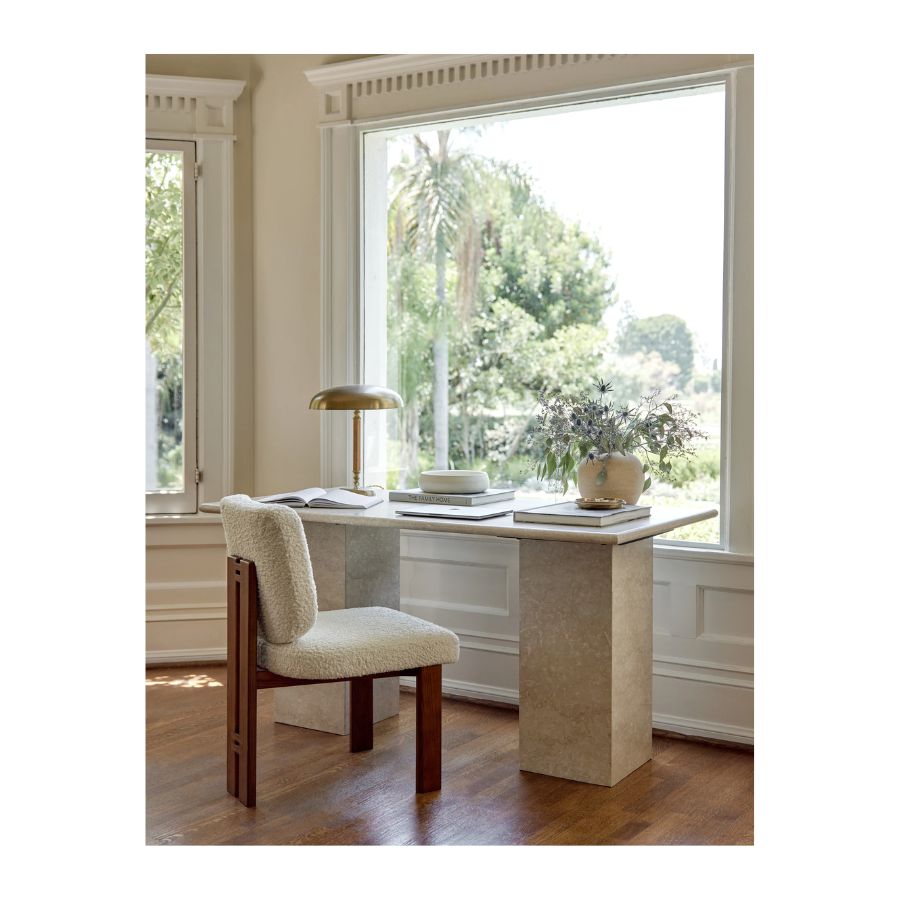
Price: $2,699
Comes at a cost, but is there anything more beautiful than a white marble desk in front of a window overlooking nature? Add a boucle chair and you'll look forward to start working every morning.
Be The First To Know
The Livingetc newsletters are your inside source for what’s shaping interiors now - and what’s next. Discover trend forecasts, smart style ideas, and curated shopping inspiration that brings design to life. Subscribe today and stay ahead of the curve.
Raluca formerly worked at Livingetc.com and is now a contributor with a passion for all things interior and living beautifully. Coming from a background writing and styling shoots for fashion magazines such as Marie Claire Raluca’s love for design started at a very young age when her family’s favourite weekend activity was moving the furniture around the house ‘for fun’. Always happiest in creative environments in her spare time she loves designing mindful spaces and doing colour consultations. She finds the best inspiration in art, nature, and the way we live, and thinks that a home should serve our mental and emotional wellbeing as well as our lifestyle.
-
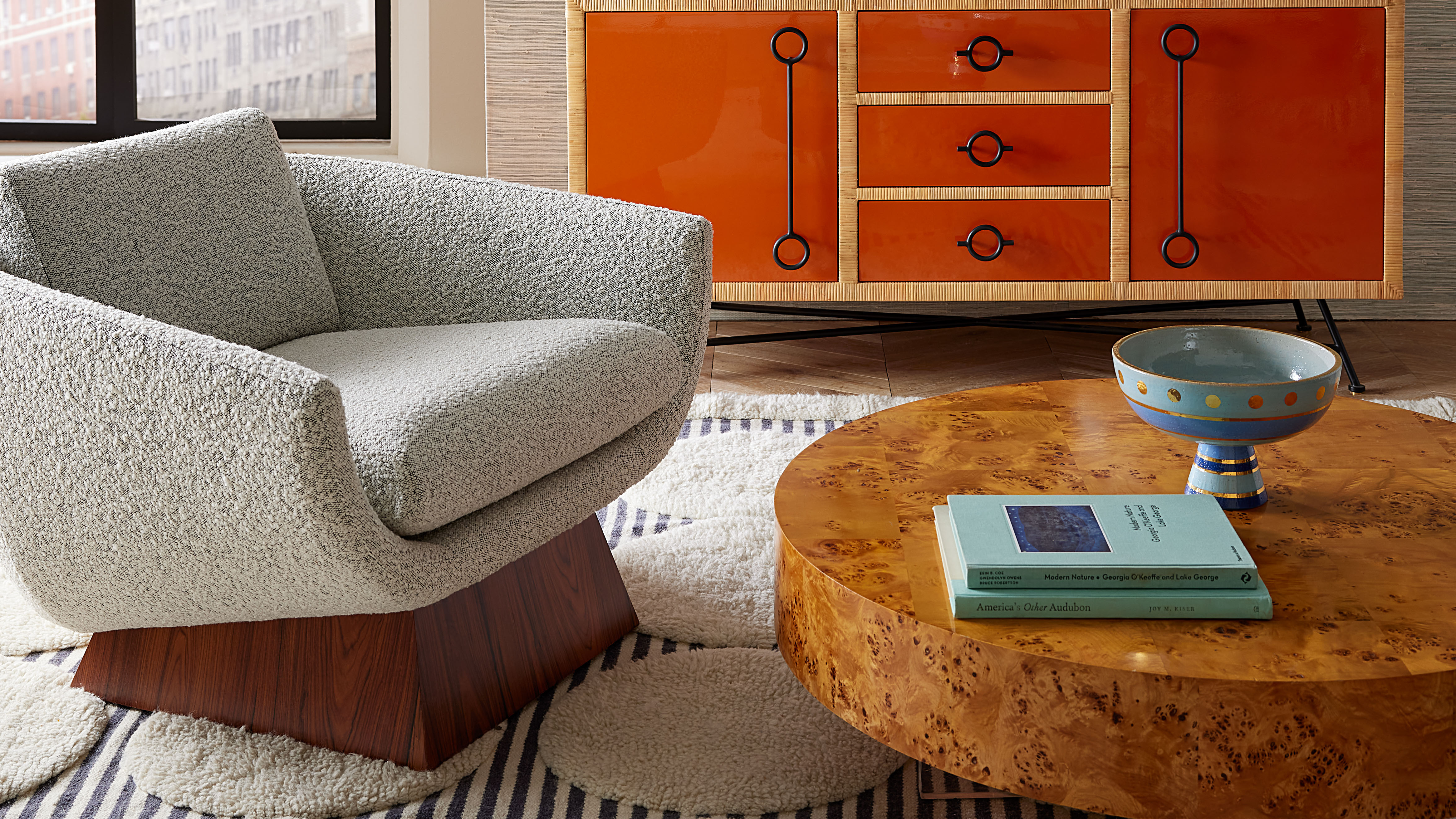 Burl Wood Decor Is 2025’s Most Coveted Comeback — Here’s How to Get the Storied Swirls for Less
Burl Wood Decor Is 2025’s Most Coveted Comeback — Here’s How to Get the Storied Swirls for LessIrregularity is the ultimate luxury, but you don’t need an antiques dealer to find it
By Julia Demer Published
-
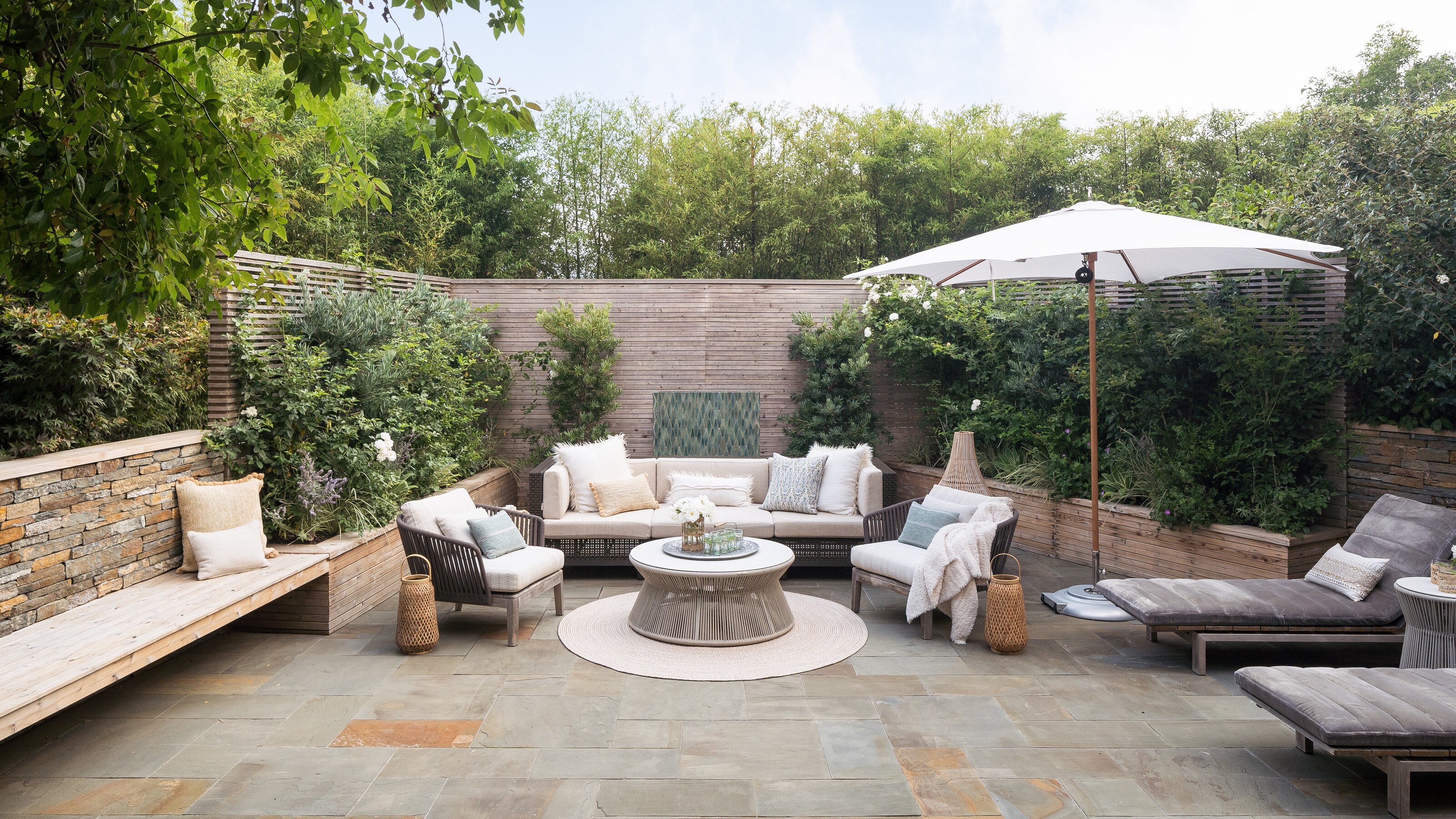 5 Garden Features That Instantly Add Value to Your Home — While Making Your Outdoor Space More Practical, too
5 Garden Features That Instantly Add Value to Your Home — While Making Your Outdoor Space More Practical, tooGet to know all the expert tips and tricks for making your backyard a standout selling point for your home.
By Maya Glantz Published
